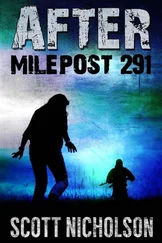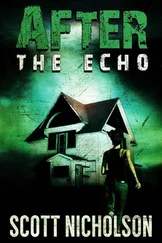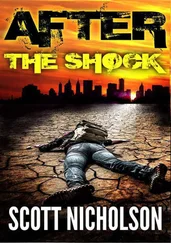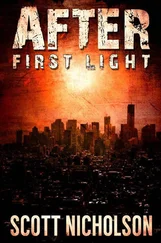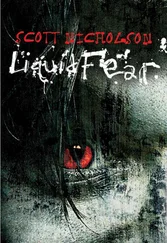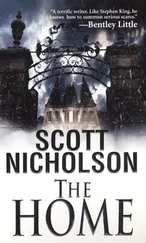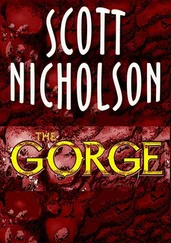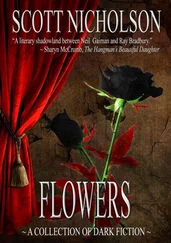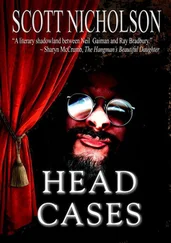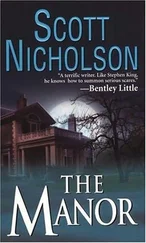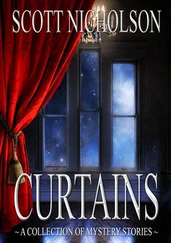Scott Nicholson - Chronic fear
Здесь есть возможность читать онлайн «Scott Nicholson - Chronic fear» весь текст электронной книги совершенно бесплатно (целиком полную версию без сокращений). В некоторых случаях можно слушать аудио, скачать через торрент в формате fb2 и присутствует краткое содержание. Жанр: Триллер, на английском языке. Описание произведения, (предисловие) а так же отзывы посетителей доступны на портале библиотеки ЛибКат.
- Название:Chronic fear
- Автор:
- Жанр:
- Год:неизвестен
- ISBN:нет данных
- Рейтинг книги:3 / 5. Голосов: 1
-
Избранное:Добавить в избранное
- Отзывы:
-
Ваша оценка:
- 60
- 1
- 2
- 3
- 4
- 5
Chronic fear: краткое содержание, описание и аннотация
Предлагаем к чтению аннотацию, описание, краткое содержание или предисловие (зависит от того, что написал сам автор книги «Chronic fear»). Если вы не нашли необходимую информацию о книге — напишите в комментариях, мы постараемся отыскать её.
Chronic fear — читать онлайн бесплатно полную книгу (весь текст) целиком
Ниже представлен текст книги, разбитый по страницам. Система сохранения места последней прочитанной страницы, позволяет с удобством читать онлайн бесплатно книгу «Chronic fear», без необходимости каждый раз заново искать на чём Вы остановились. Поставьте закладку, и сможете в любой момент перейти на страницу, на которой закончили чтение.
Интервал:
Закладка:
He logged out of his e-mail program, annoyed. If somebody was playing cat and mouse, he wanted to be the cat. “What?”
“Something’s moving out there.”
“Is the fox back?” Roland had reloaded the pistol and returned it to the bedside table because he hadn’t expected the fox to return. The creatures were most active at dawn and dusk, and it was rare to see one in full daylight. That’s why he’d suspected the one he’d shot at that morning had been rabid.
He’d hated to kill it, because it was just trying to survive, and it might even have a pack of kits in a den somewhere. But he and Wendy had grown fond of their chickens, treating them like pets and also enjoying the fresh brown eggs. It was part of their new game of playing hillbilly homesteaders.
“I don’t think it’s the fox,” Wendy said. “It’s bigger.”
What could be bigger than a fox? A stray dog? A deer? A bear?
Roland set his laptop on the sofa and went to the window. He peered into the woods, scowling. Wendy leapt up and grabbed him around the neck, pulling him down.
“Gotcha!” she squealed with a laugh. They wrestled as she giggled, and Roland finally pinned her against the window seat and kissed her.
“Who got who?” he whispered, running his hands over her hips.
He glanced out the window again, glad they were out in the country and didn’t have to worry about Peeping Toms and Shit. Was that a reflection?
The light flashed again in the woods, its distance difficult to gauge. Hunting season was long past, but hikers might be exploring the Blue Ridge trails, wandering away from the nearby national park.
“Come on, zookeeper,” Wendy said, unaware of his unease. “Tame your tiger.”
“Shh,” he said, still on top of her but no longer pressing his weight against her.
“What’s wrong?”
He moved toward the glass, peering out. “Something’s out there.”
“I already used that trick,” she said. “You have to come up with your own.”
“No, really. I saw a glint of light, like the sun bouncing off of metal.”
Wendy rolled up beside him, leaning on the ledge. “I can’t see the forest for the trees.”
Roland glanced down at her sketchbook. What the fuck?
It was a slightly surrealistic treatment, with distorted and oversized eyes, but the portrait was unmistakable. David Underwood. The older, psychotic David, as they’d found him in the Monkey House, hollowed out from Briggs’s deranged experiments, not the teen David from the original clinical trials.
The sketch caused Roland to realize just how much they’d all changed since the first trials. But some had changed more than others.
“Who is this?” Roland asked, tapping the pad.
“I don’t know,” she said. “Just a face.”
“Not bad.” He studied her dark eyes, looking for any sign of confusion or suspicion. “He looks familiar, though.”
“Maybe it’s like your book title. Everything’s been done before.”
Roland gazed into the forest. Nothing there.
Don’t tell me I’m cracking up. I thought peace and quiet was supposed to calm your nerves.
He moved away from the window, shrugging off Wendy’s half-hearted attempt to lull him into a kiss. “By the way, honey, have you been using the computer?”
“Not since yesterday.” Her tone barely hid the hurt of rejection. “Why?”
Because I wonder if you’ve been sending me e-mails. The enemy within. That’s how they get you. That’s how it always goes bad.
“Nothing,” he said. “It’s just been a little glitchy.”
“You’ve been acting a little glitchy yourself. Where are you going?”
“To get the gun, just in case that fox comes back.”
CHAPTER THIRTEEN
Burchfield made a campaign stop in Charlotte, speaking to a women’s group about the importance of funding early-childhood education, addressing a Rotary Club crowd at breakfast, stopping by the city library for a photo op, and giving a short interview to a Charlotte Observer beat reporter.
Wallace Forsyth admired the way the man slightly adjusted his personality to fit each situation while maintaining the polished veneer of the career politician. Forsyth was no political slouch, but playing folksy, down-home politics in East Kentucky was a much simpler game than prepping for the national stage.
Now, as they drove northeast toward Raleigh on I-85, Burchfield studied the morning edition of the Observer.
“Only down six points,” Burchfield said. “Thank the Lord for Tea Party wackos fracturing the base.”
“Now, Daniel, they’re a vital part of your constituency,” Forsyth said. “Besides, you’ve got plenty of time to make a push. The Iowa caucus is still seven months away. Lots can happen between now and then.”
“Yeah. Like some goddamned TV celebrity could enter the race.”
“You got ’em all beat on looks,” Forsyth drawled. “And you got most of ’em beat on money. Just keep beating that donkey with a stick and it will start braying like a jackass.”
Burchfield softened slightly at the compliments. He flapped the newspaper, folded it, and tossed it on the back ledge. The driver, a Secret Service agent named Abernethy, was separated from them by a layer of soundproof glass. The back of the limousine had become an informal Command Central for the campaign, although the official headquarters were in Burchfield’s hometown of Winston-Salem.
They’d be setting up satellite offices around the country, but North Carolina was one of the few Southern Red states that occasionally swung Democratic. It was important for Burchfield to make a stand on his home turf, even if he had to fend off a pack of well-heeled conservative challengers in his own party first.
“Any news on the Morgans?” Burchfield asked.
Forsyth fished his cell from the inside of his jacket. It was some fancy BlackBerry and did all kinds of tricks that scared him half to death. Burchfield had forced him to learn to text and operate the pager system, but that was about all Forsyth could handle. He was afraid he’d hit the wrong button and send out some top-secret memo or one of those slips of the tongue that the media would twist out of shape.
But since it wasn’t government-owned, Burchfield had assured him, nobody could file a public-records request on his messages.
“Why don’t we just check up on them, if I can figure this thing out,” he said.
“Careful you don’t trigger the Star Wars missile defense system,” Burchfield teased.
“Maybe I could send a bomb into San Francisco and make the world a better place.”
“Now, Wallace, they’re American citizens just like the rest of us. If there’s any killing to be done, let’s keep it in the Middle East where it belongs.”
“California’s a lost cause, anyway. Unless you hog-tied Schwarzenegger as your running mate.”
Burchfield smirked. “You know the rules, Wallace. Never pick a sidekick who’s more macho than you are.”
“If I was younger, Daniel, I’d be mighty offended.”
“Don’t worry. The ‘elder statesman’ thing is in. Cheney, Biden, people kind of like a VP who stays in the background.”
Forsyth laboriously punched in the numbers. The limousine ride was smooth, but Wallace hadn’t eaten since the Rotary Club ham biscuits, and his blood sugar was a little low. When he thought he had the numbers right, he waited for the ring and the terse response: “Scagnelli.”
“It’s Wallace. What you got going on?”
“Doing my job.”
“That’s reassuring. And what exactly do you imagine that is today?”
“One thing I need to know. Do you have other agents on this job?”
“Just the CIA agents were brought into play.” Which was true, if Wallace considered the “job” to be keeping the Morgans under surveillance. “How did she react?”
Читать дальшеИнтервал:
Закладка:
Похожие книги на «Chronic fear»
Представляем Вашему вниманию похожие книги на «Chronic fear» списком для выбора. Мы отобрали схожую по названию и смыслу литературу в надежде предоставить читателям больше вариантов отыскать новые, интересные, ещё непрочитанные произведения.
Обсуждение, отзывы о книге «Chronic fear» и просто собственные мнения читателей. Оставьте ваши комментарии, напишите, что Вы думаете о произведении, его смысле или главных героях. Укажите что конкретно понравилось, а что нет, и почему Вы так считаете.

